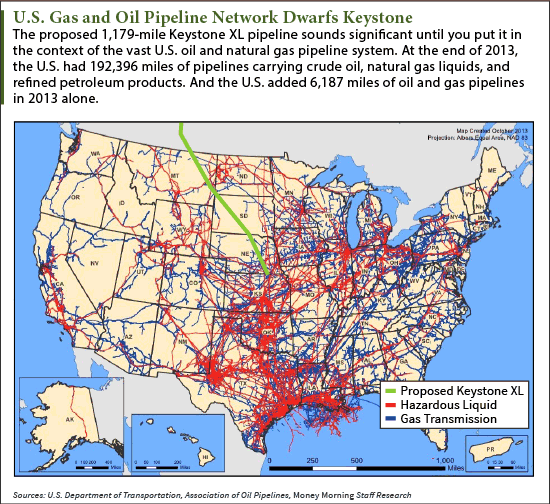
I’m not familiar with the oil processing issue so ask this question.
Which is worse, building a pipeline to transport tar sands oil or building refineries closer to the source of said oil? My assumptions would be that the end product, fossil fuel, would be more dangerous to transport than the crude oil.
We do it all the time. If people want a threat free world, they live in a fantasyland.
There are thousands of miles of gasoline pipelines in the US.

A refinery still has to move the products, including by-products that are not as easy to move as the light-end fuels. Now you would be farther from the petrochemical plants that also use the output of the refineries.
The US does not have a refinery shortage. We produce more refined products than we use ourselves and export the surplus. We have a shortage of crude oil to feed those refineries, particulary the heavy oil like the oil sands produce.
It would also be more expensive by several orders of magnitude because the different refined products need to be transported separately.
Part of the problem with the tar sands oil transport is that it has to be mixed with volatile chemicals to dilute it enough to allow it to flow. The end result is Dilbit, a sandy, chemical, oil slurry that is much more abrasive and corrosive to pipes than ordinary oil. In 2010, when a 6 ft. diameter pipe cracked on a Kalamazoo, MI tributary, it took 24 hours for the company, Enbridge to realize there was a break. They have since spent over a $billion cleaning it up and are not finished yet.
It has just been brought to my attention that there are huge reserves in Utah of oil sands. Is it possible that not only will the price of oil affect the feasibility of building the Keystone Pipeline, but also the interests of Utah politicians who want their oil sands to avoid competition with Canada’s? Utah’s tar sands are estimated to hold 12 to 19 billion barrels of oil.
Here is an interesting article covering both Canada and Utah tar sands oil. http://ostseis.anl.gov/guide/tarsands/